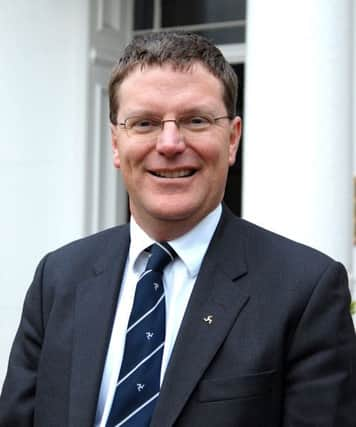Head hits out over marking appeals shake up


Mark Ronan from Pocklington School has questioned why Ofqual has toughened its stance on appeals.
It follows an increase in the number of reviews requested by pupils and schools in 2015, with some 460,000 challenges lodged last summer.
Advertisement
Hide AdAdvertisement
Hide AdOfqual’s executive director for general qualifications, Julie Swan, said last month that it “was not fair to allow some students to have a second bite of the cherry by giving them a higher mark on review, when the first mark was perfectly appropriate”.
From results day this August, exam re-marks will only be allowed if a “clear marking error” has been made.
However, Mr Ronan said Ofqual should be looking to reduce the number of marks which need appealing rather than making it harder for exams to be regraded.
He said: “Ofqual says its reforms will prevent pupils from getting a second bite of the cherry, because that’s not fair on those whose schools don’t appeal. But that’s like saying a customer who has been charged the wrong price shouldn’t get a refund because others haven’t thought to ask.
Advertisement
Hide AdAdvertisement
Hide Ad“If a shop responded to customers’ complaints by making it harder for grievances to be addressed, they would have every right to be unhappy.
“A more acceptable response to repeated gripes about goods or service is to take steps to prevent the problem happening in the first place. Which is why I am baffled by the decision of examinations watchdog Ofqual to change its system of reviewing GCSE, AS and A level results.”
Last year, more than 90,000 exam results had to be changed after appeals by schools who knew that particular results were out of line with a pupil’s other grades, an increase of 17 per cent in one year and the highest on record.
Mr Ronan said the proposed change would particularly impact humanities subjects when judgement is often subjective.